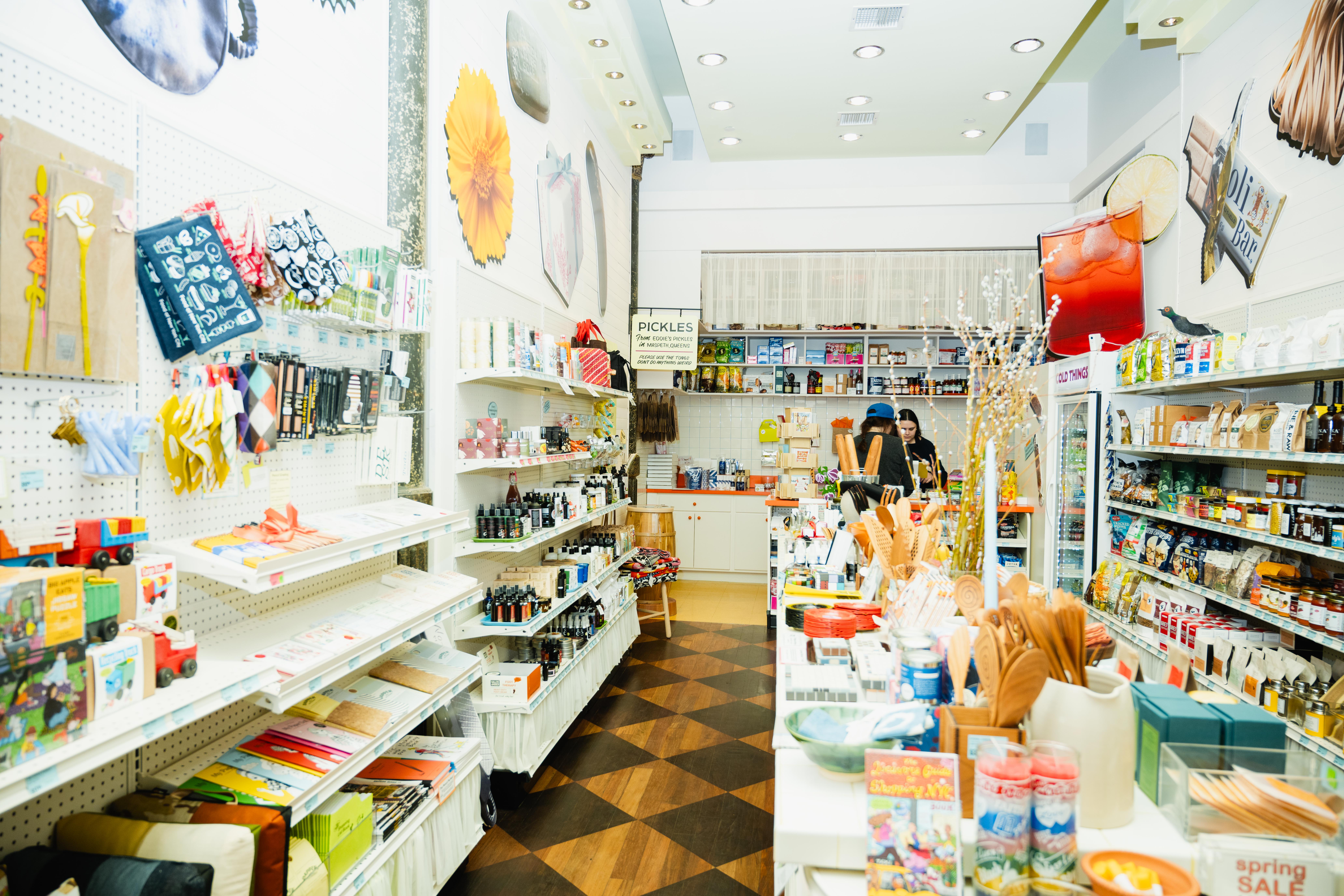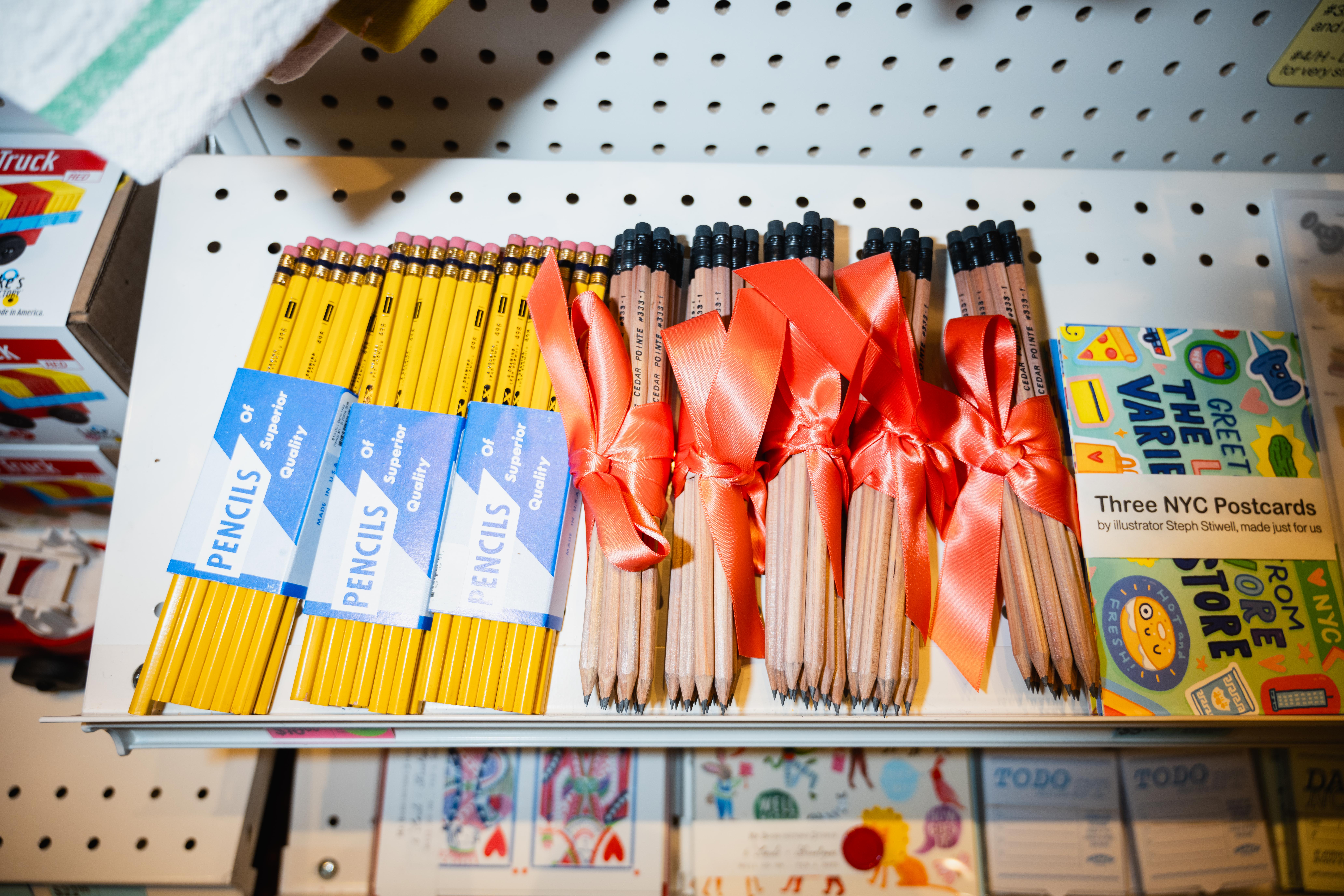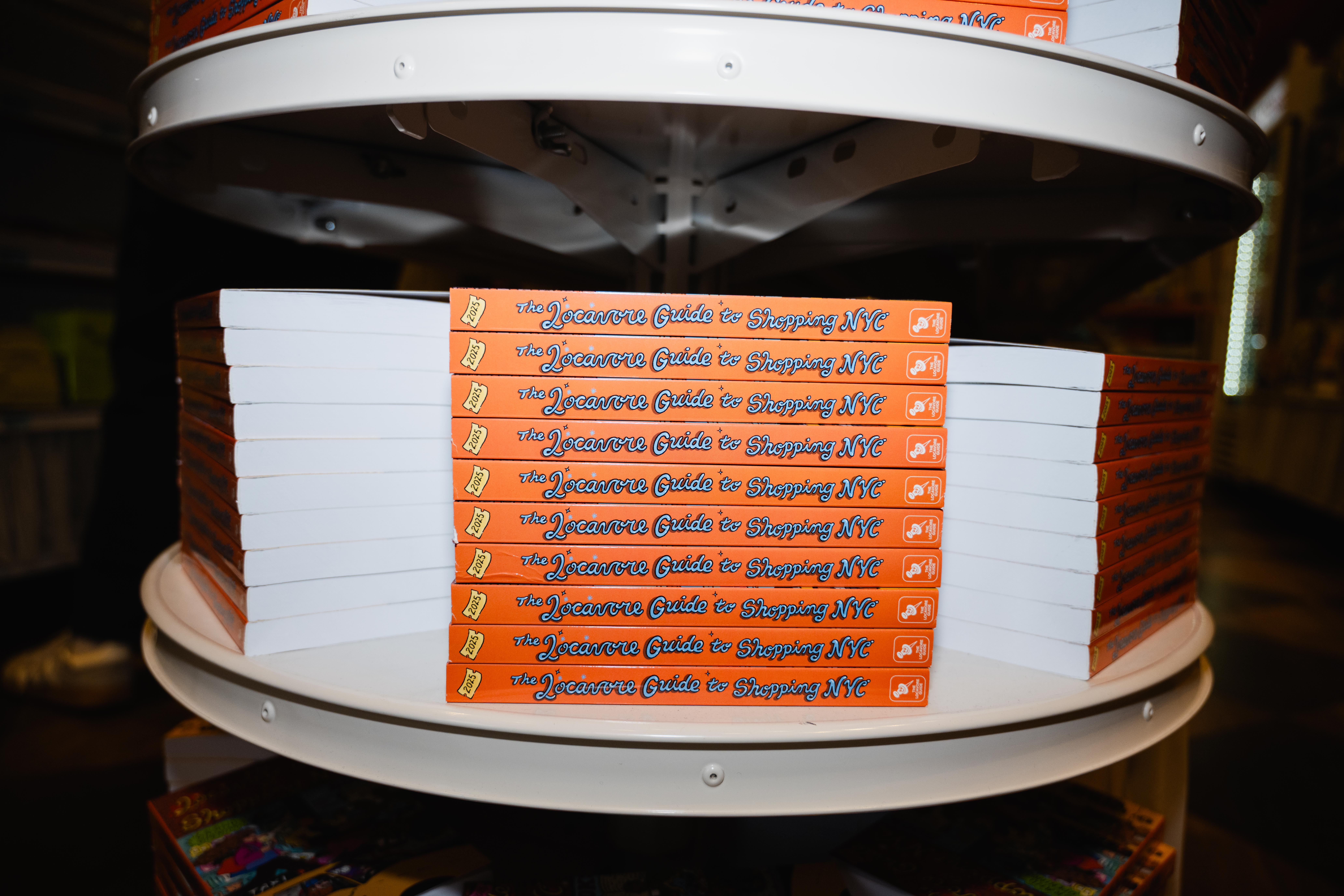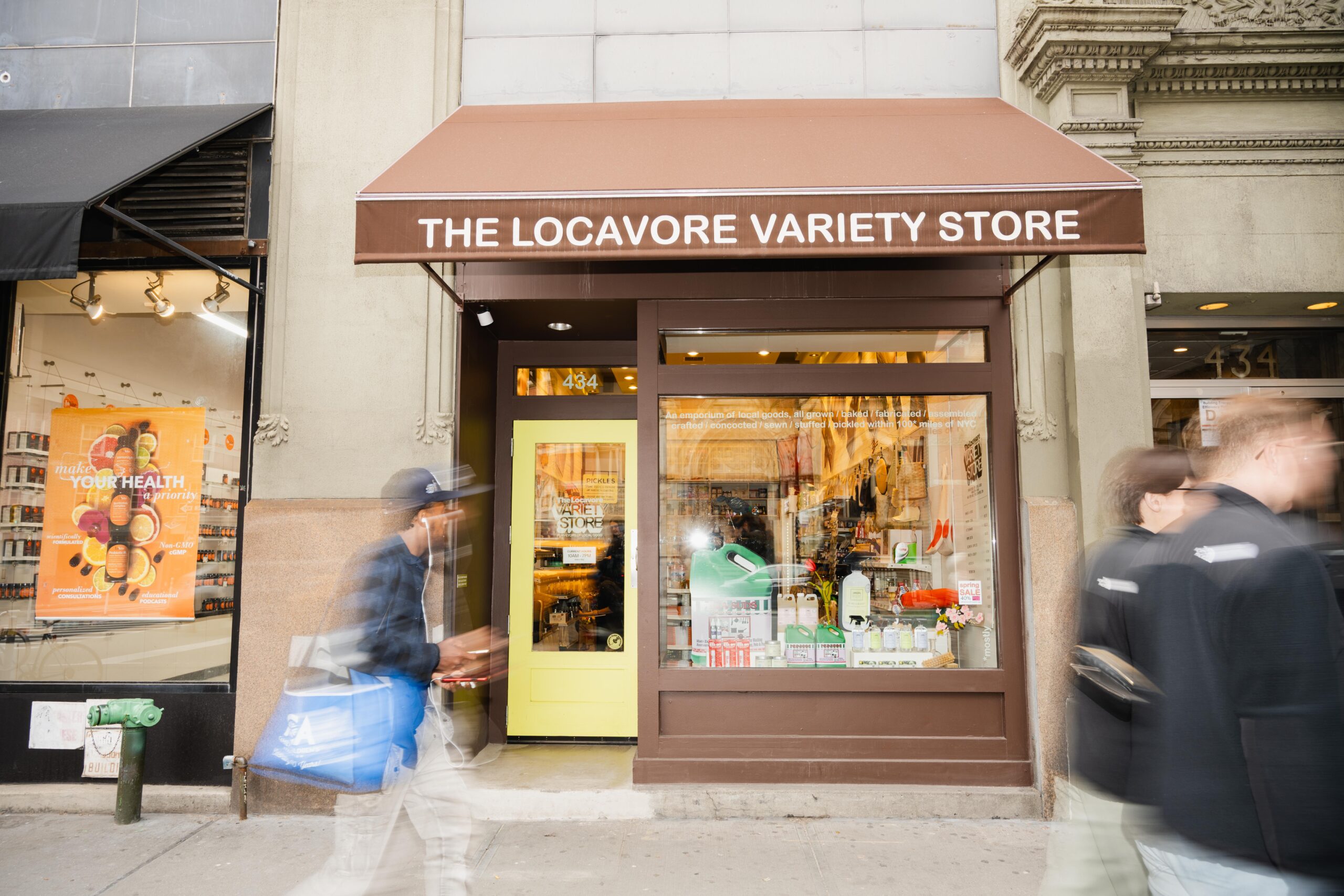In 2021, Caroline Weaver set out on a mission: catalog every retail space in New York City on foot. Now, almost four years and over 14,000 stores later, she’s nearly finished. The result? The Locavore Guide: a searchable database of locally-owned retail stores within New York’s five boroughs. The guide provides New Yorkers a tailored map of local businesses across a wide range of categories — from home decor to specialty foods to funerary supplies.
Before launching The Locavore Guide, Weaver owned CW Pencil Enterprise on Manhattan’s Lower East Side, which she opened in 2014. The storefront sold pencils, stationary, and office supplies. Camille Jorgensen, Locavore’s Chief Operating Officer, met Weaver in 2018 through CW Pencil and worked with her to create the guide after the store’s closure during the pandemic. Jorgensen works alongside a team of data managers to keep the website’s database updated, a job that requires her to keep a close eye on the local business landscape.
Weaver eventually took the Locavore project back to her shopkeeping roots. “Caroline was like, a born shopkeeper,” joked Jorgensen. In the summer of 2024, the Locavore Variety store opened its doors on 6th Avenue and 10th Street in Greenwich Village. The shop serves as a storefront for locally manufactured products from businesses with no physical retail space, and features an ever-updating rotation of local offerings and quirky crafts. (Dum-Dums-wrapped lighters handmade by actress Amy Sedaris are available for $10 at the register.) In time for spring, cutouts of flowers and candy adorn its walls, and its window display is stocked with spring cleaning supplies.

The physical Locavore Guide, released in November of 2024 and available for sale at the shop, is a distillation of Weaver’s database in hand-held form. Pared down to a selection of 670 shops across the five boroughs, the guide is a pocket-sized reference for day-to-day and specialty shopping needs. When selecting the included stores, Weaver and her team paid careful attention to the shopping experience — selecting stores with charm, variety, and authenticity.
Weaver wears many hats at The Locavore, including working behind the shop’s counter, partnering with local retailers, and creating social media content for the shop’s 24,000 Instagram followers. She creates fun, eye-catching videos on a variety of topics, from a profile of a Taiwanese grocery store to the economics of running a small business. “She’s always been a small business owner herself and has been really into supporting other small businesses,” Jorgenson said.
The coronavirus pandemic was the nail in the coffin for many small businesses in New York, including CW Pencil, overwhelmed by increased supply chain costs and a lack of foot traffic. The hollowing out of local retail made it harder for small businesses to get a foothold in a community. While major retailers are usually able to weather sustained financial hardship, independent shopkeepers don’t have the same luxury. And taking into account New York’s post-pandemic rent spike, prospective store owners are often unable to save enough money to front the cost of opening a storefront.

In mid-March of this year, Weaver was joined by a panel of shopkeepers to discuss the challenges and joys of running a local business at Shopify’s SoHo event space. For many of the panelists, the first roadblock was the reaction of the people around them. “So you’re gonna become a shop girl?” was the response Katherine Lewin, owner of the dinner party supply store Big Night, received when she informed her boss that she was quitting her corporate job to open a shop. According to Lewin, this reaction is indicative of the attitude that many people have towards shopkeeping. “The general public’s notion around that is so different now to what it would have been 60 or 70 years ago when it was, for lack of a better term, a much more noble profession,” she said during the panel.
Many local business owners must continue to work at their traditional nine-to-five jobs for months or even years after initially opening their shop. Another panelist, Axqyl Storms, owner of non-alcoholic beverage store Minus Moonshine, worked as an optician before opening their first retail location in 2021. Storms spent months balancing both their full-time job and their role at the store — a common position for many store owners in their first months — which they say took a toll on the business as a whole.
The Locavore’s philosophy encourages shoppers to resist the convenience of shopping online or at major retailers and instead focus on the ways that their spending can contribute to their local community. “It’s all about being really intentional about where you get things,” Jorgenson said. “Maybe it takes a little bit longer to find the thing you’re looking for, or it’s not the exact one, but [it’s about] really exhausting all of your options locally before you go online or to a big box store,” she continued.

The Locavore and its mission have received an outpouring of support. Leigh Altshuler, owner of Sweet Pickle Books, has been a friend of Weaver’s since first coming to her for advice about her own shop. Altshuler stocks The Locavore Guide alongside stacks of used books (and pickles), and says the positive response to it has been overwhelming. “Whether they’re coming in looking for [the guide], or they happen upon it, people just get really happy every time they see it,” she said.








Leave a Reply